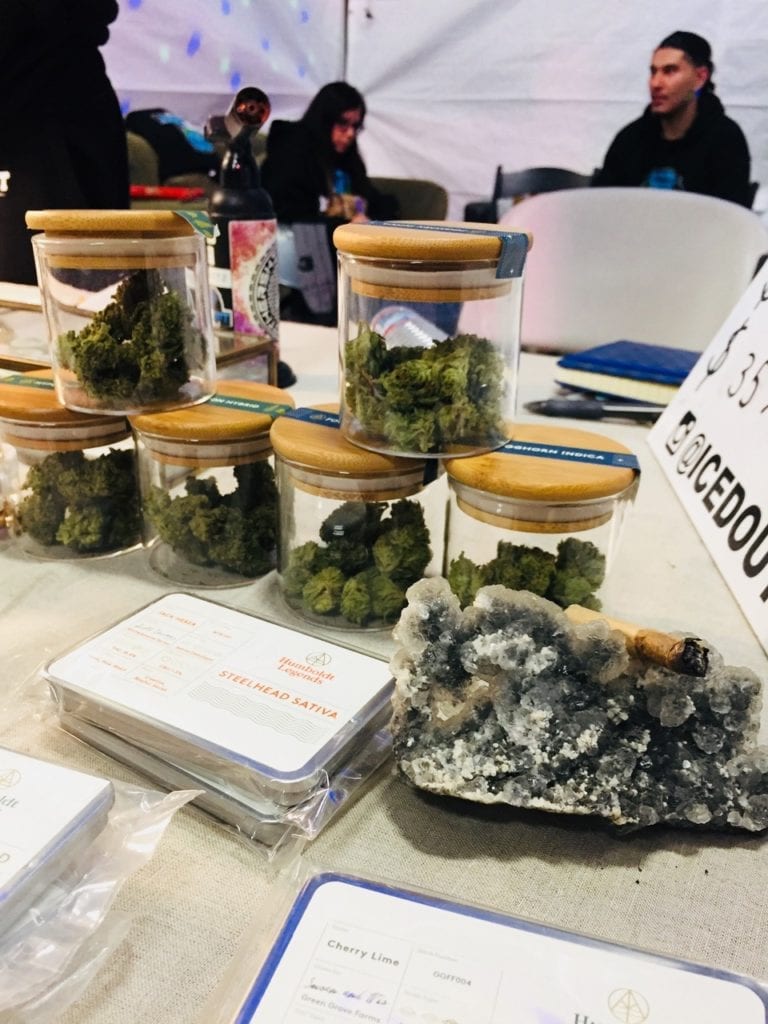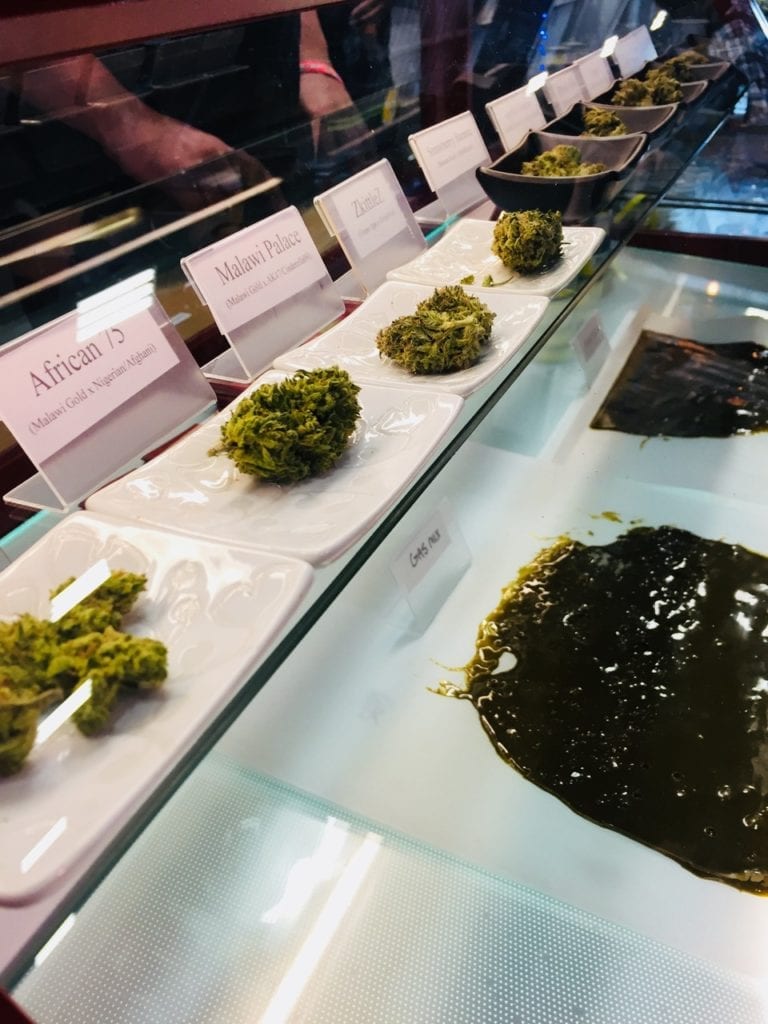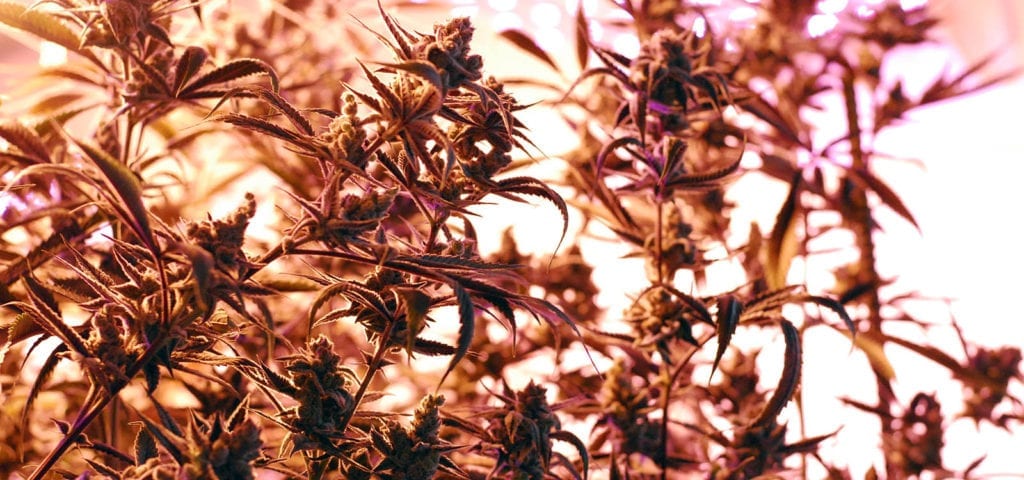Michael Senderovich is the founder and president of Zeyger Insurance Services, a California insurance brokerage working with cannabis companies despite the industry’s ongoing federal prohibition.
In this episode of the Ganjapreneur.com podcast, Michael joins our host TG Branfalt to explain the nuances of insurance and how the mainstream industry generally operates, how insurers are beginning to interact with cannabis professionals, what cannabis business owners should be looking for in the insurance agents and brokers they choose to partner with, and a whole lot more!
Tune in via the player below or scroll further down to read a full transcript of this week’s Ganjapreneur.com podcast episode.
Listen to the podcast:
Read the transcript:
TG Branfalt: Hey, there. I’m your host, TG Branfalt, and you are listening to the Ganjapreneur.com podcast, where we try to bring you actionable information and normalize cannabis through the stories of ganjapreneurs, activists, and industry stakeholders. My guest today is Michael Senderovich. He is the president and founder of Zeyger Insurance Services. How’re you doing today?
Michael Senderovich: I’m doing great. You’ve done with the pronunciations there, TG.
TG Branfalt: We went through it several times before we kicked this off, so if I botched that, I have a real problem. You know, before we get into — you’re an insurance guy — before we get into the details of that, I want to know about you. What’s your background and how did you end up serving this industry?
Michael Senderovich: Sure, sure. Well, I’ve got a pretty extensive background in anything that is risk-related. When I started my first business, we were buying and selling debt portfolios. Then we were working on unsecured loans, and after that I basically, during my tenure of graduate school is when I transitioned into the insurance world. I’m one of those kind of crazy guys that I kind of look at an industry and see what’s wrong with it and I try to fix it in a completely kind of psychotic way where I get too involved, and kind of create this movement, hopefully. At least that’s what we’re trying to do, so a big background in risk, and insurance is really all about risk. It’s literally, one of the primary definitions of insurance is risk and the exposure of risk, so big, big kind of proponent of getting things done properly in terms of getting things insured properly, and kind of educating our clients and educating people just in general because insurance is such a broad thing, but it’s actually one of those broad things it’s just so misunderstood.
TG Branfalt: Where did you go to college?
Michael Senderovich: I went to college both for undergraduate and graduate at the University of Redlands, which if anybody listens to this podcast is familiar with Redlands, you know that there’s actually a pretty strong cannabis culture there and then also surrounding areas like San Bernardino and so on.
TG Branfalt: When you went into graduate school, were you focused on risk then or did that come about as you sort of got your claws into the program?
Michael Senderovich: Yeah, I’d been involved with risk since kind of my first venture. I started my first business at 21 and I went to graduate school at 28, so I was already kind of versed on risk when I was going in to graduate school, but graduate school kind of opened up a bunch of different kind of avenues and gave me a much better understanding as to where risk originates, what risk can do to a business, so on and so forth.
TG Branfalt: That’s cool, man. Congratulations on still doing your own thing from 21. Not a lot of people can say that.
Michael Senderovich: Thank you. Thank you.
TG Branfalt: Let’s start with some basics here. We all, everyone listening to this probably has some sort of insurance or another, whether it be business, whether it be your car insurance, but as you said, it’s misunderstood, so help us, laypeople, who are just insurance consumers and know really nothing about what it actually is. What is it, actually?
Michael Senderovich: All right. Insurance, if you open up any type of literature, if you’re studying for an insurance … excuse me. If you’re studying for an insurance exam, basically insurance is the transfer of risks from one party to another, and that’s in return for, in the insurance world, premium, so what you’re doing essentially is when you’re paying the insurance company a premium, they now with that premium are assuming the risk. They determine risk based off a bunch of different factors. You know, I’m sure people have heard of the term actuary and then also underwriters. Actuaries are a little bit more, I think, understood than underwriters.
Underwriters are kind of have this kind of black magic thing going on, but actuaries are basically just, they are statisticians. What they do is they look at these large, large samples of data and they figure out risk based off of that data. What underwriters do is they’re basically kind of like, the actuaries write the book, or maybe instead of the book they write the manual, and then underwriters take a look at that manual and they build a policy, for lack of a better term, based off of the data that was given to them by the actuaries. Insurance as a whole is basically, if you kind of compare an insurance company to an individual, if you’ve got something that’s risky, let’s say that you’re holding on a piece of jewelry, right? And if you give that piece of jewelry to someone else to protect it or if you even hold on to that piece of jewelry and they protect it just based off of, let’s say, a monetary basis.
Then what happens is if you have a loss, the insurance company or that person that is assuming that risk, if anything should happen to that item or if anything should happen to the person, because insurance also deals with personal injury, they will give you a basically … some people call it a benefit. It’s actually not supposed to be called a benefit, but what they do is they pay you out a dollar sum to make you whole again. It’s basically called the principle of indemnity, so their goal is to take money from you, and in return what they do is they offer you protection. They’re kind of like a bodyguard.
TG Branfalt: The cannabis industry is obviously, it’s nascent, right? States today have different regulations regarding … you know, you look at a state like New York. The law requires them to have these premiums to maintain these insurance premiums, but cannabis businesses, so how does the insurance industry operate in this nascent sort of strangely piecemeal regulated industry?
Michael Senderovich: Well, kind of the great thing and maybe not … I guess it’s like a catch-22 when we’re talking about this particular question. The insurance world is not really a stranger to how things are in the cannabis world because every state has its own department of insurance. For example, I’m in California. We have the California Department of Insurance, and whichever state we’re talking about, they’re going to have their own department, so they all have their own way of doing things, but we have basically these master policies that we kind of go off of, and each state either approves or declines that particular policy, basically.
They’re kind of like consumer watchdogs, so with all these different departments of insurance, it’s really important to kind of get a core competency of each state, and if you have any one that’s telling you that they’re licensed in all 50 states and they’re a one- to two-man shop, I would probably kind of stray away from an agency brokerage like that because it’s just not possible to keep up with all the regulation. Also, with what each state is doing, because it’s changing … I mean, the insurance world is a little slow to change, but they do change and it’s really difficult to kind of keep up with what’s going on.
TG Branfalt: With regard to the cannabis space, what are some the issues that you as an insurer are facing?
Michael Senderovich: To answer your question, the insurance world, like I said, because it’s so kind of scattered and so all over the place, the cannabis kind of industry all on itself is really not that big of a problem for insurance to insure. It’s a problem for them to insure currently because, well, you’ve got the federal versus state thing. On a state level, yes, we have our departments of insurance, but we still kind of have to take into consideration the federal guys, so it’s not really much different than what you’re looking at in terms of any other vendors or any other services or anything else cannabis-related. It’s kind of sort of the same problem.
The insurance carriers, they want to write this business because they see an emerging industry and they see an insurable industry, more importantly, and for insurance, for insurance companies, it’s all about insurable interest. Do they really want to assume the risk? I mean, if it’s risk that’s just way too crazy and way too high, obviously they may not want to go into that industry, so you have a kind of a niche market of insurers that will do that particular risk because it’s so risky, but you do have that market and insurance carriers want to go in there. In fact, there’s actually just one insurer that I can think off the top of my head that was just recently kind of okayed by the Department of Insurance in California, called California Bear, to do more cannabis-related business, so it’s kind of the same thing as everything else. Nothing too different, but there is hope. I mean, obviously there’s plenty of hope.
It’s just right now we’re kind of in purgatory because insurance carriers want to do it, but they’re kind of tied up because they’re like, “We really can’t because if we do something, then we’re kind of stuck in the middle.” You know, if some crop gets damaged or if a dispensary gets robbed or someone gets hurt in a dispensary, I mean, there’s really not a ton of regulation there yet, so it’s hard for them to place a contract that says, “We will do this” because there’s no law or there’s no regulation that’s very clear about what it is that they’re doing.
TG Branfalt: You guys aren’t really faced with any like, licensing issues? When states allow usually different industries such as the lawyers’ group, the bar association, they’ll have to write some sort of memo and that’ll say, “Hey, it’s okay for you guys to do business with this industry, right? We’re not going to disbar you, we’re not going to take any action against you.” This isn’t something, it sounds like, that comes up in your line of business, really.
Michael Senderovich: We don’t have anything like that, and I’d appreciate it if maybe we can keep this on the down low so that they don’t get any ideas about implementing something like that. I mean, in terms of like, morals and ethics, the carriers themselves are kind of morally and ethically adverse to the cannabis industry, but they do and they will write it. I mean, it’s just really depends. You know, insurance companies are just like any other company. You have your corporate leadership and your stakeholders, and basically if all agree and they want to go into this industry, then they’ll do it, so there’s nothing really specific to us as brokerages because basically brokerages, we’re kind of like retail agents.
It’s the same thing as if you were to look at like, a restaurant, right? It’s a similar type of business where we serve insurance, and basically what we can do is we can kind of write whatever it is that we want. We can write all the broad categories and all the broad industries that we want, or we can maintain a really, really niche, which is what our agency likes to do. We’ve always been kind of niche in everything that we’ve done, so going back to also the portfolios and the risk management that we’ve also done before, we transitioned into the insurance, so it really is contingent upon the carrier itself. Do they want to do this or do they not? If they do, then they work with the department of insurance and they figure out what kind of policies are available, and there’s really not too many. I mean, we can go and I think maybe a little down the line we’ll actually go through what kind of coverage is available, what is available on the market, and then if that’s something that they want to write, then that’s what they’ll write.
The only problematic one, or actually the only two problematic ones would be commercial auto insurance and workers’ compensation. These are really the two that are kind of the more complex ones right now because you have to be regulated. You have to maintain a certain amount of solvency in your … sorry, misspoke. You have to maintain a certain amount of solvency, and this goes for all insurance carriers, but for work comp and for auto it’s a little bit more stringent when it comes to regulation.
TG Branfalt: When you talk about auto, you’re saying that it’s dicey. Is it because they’re transporting cannabis?
Michael Senderovich: It’s dicey because of that, yeah. It’s dicey because of a lot of different factors, actually. Some of the primary factors are where you’re actually transporting, so if it’s crossing state lines, that makes it more dicey. If you are in a riskier area that is more prone to accidents or more prone to theft out of vehicles or more prone to just risk in general, then those carriers have a much stronger kind of ability to just say, “No, we’re not going to take this business” and decline. Or what they do is they just make these premiums completely unaffordable and that’s the way that kind of say, “Oh. Well, we can’t really help you right now.”
TG Branfalt: Well, I definitely want to talk about what is and what isn’t covered, but before we get into that, we got to take a break. This is the Ganjapreneur.com podcast, I’m TG Branfalt.
If you are looking for a job in the rapidly growing and highly competitive cannabis industry, Ganjapreneur.com is the place to look. Visit the Ganjapreneur job board today to browse current openings with cannabis companies throughout the United States, from entry level budtender positions to executive level career opportunities. You can also create a profile and upload your resume to be discovered by cannabis recruiters. Visit our job boards at jobs.ganjapreneur.com to create your profile today.
If you are a business owner, you can post your job openings for as little as $25 on our job board to reach the largest and most engaged audience of cannabis professionals on the web. Companies who are listed in the Ganjapreneur business directory are eligible for free job listings. If you are already signed up, contact us today via the website or send us an email at grow@ganjapreneur.com to activate your unique coupon.
TG Branfalt: Hey. Welcome back to the Ganjapreneur.com podcast. I’m your host, TG Branfalt, here with Mike Senderovich, the president and founder at Zeyger Insurance Services. Before the break, we were talking a bit about … I mean, we were talking about a lot of things insurance-wise.
Michael Senderovich: Yeah.
TG Branfalt: I mean, just a lot of issues have come up in this short space already, but I wanted to get to the basic question. What is and isn’t covered, insurance-wise, for cannabis businesses?
Michael Senderovich: Sure. This is going to get a little dodgy. I wish I can give you a clear and concrete answer, but the fact of the matter is it really all depends, and it depends on the market, it depends on where you are, and it really depends on how long you’ve been around and just a bunch of different contingencies. The primary kind of coverage, the one that usually pops up first is something called general liability.
You know, there’s a bunch of different factors that are associated with a general liability, and then there’s also a kind of an offshoot of that, and that’s called a BOP, a business owner’s policy, so these protect against liability that the business is potentially going to cause. For example, if someone comes in to your shop, comes in to your premises, then you have a policy that protects you from that person that comes in, so suppose they come in to your shop, they’re handling a jar, for whatever reason, that contains a crop and they have just really slippery fingers, and it falls and it shatters and they cut themselves. Well, they can actually sue you for that, so if they sue for that, your general liability would cover you against that. Now, the BOP is going to be similar, except the BOP gives you a little bit more in terms of protecting the actual assets of the business. Then we’re talking about, like displays, computers, so on and so forth, so basically the BOP is a little bit more comprehensive because it’s going to protect more of what the business owns.
Now, prop … I’m sorry, crop is inventory and inventory sometimes is coverable, but right now, for the cannabis industry, it’s kind of not. I mean, you will have kind of different kind of schools of thought. Some agencies and some brokerages and some even insurance carriers will kind of give you a gray area type of answer to say, “Yeah. You know, maybe.” Which kind of creates a little bit of apprehension on the side of the consumer because you never really get a concrete answer and that’s really the problem with the insurance world that is specific to cannabis right now because where there’s so little regulation and so little kind of black and white, it’s really difficult for them to say, “Yes, we’re going to do this” or, “No, we’re not going to do this.” I mean, they’re actually pretty good at saying, “No, we’re not,” but the, “Yes, we are” is a little bit tough for them.
The second that comes in is actually going to be your commercial auto. The reason I put commercial in there is whenever you are using a vehicle for a commercial capacity, and we’re going to talk about just a business capacity to kind of simple it up a little bit, if you’re using that vehicle for work, and we’re not talking about taking your car from your house and driving to your dispensary where you work. We’re talking about actually transporting crop or doing any type of business errands. Suppose you need to run to the bank, whatever. If you have just traditional personal auto insurance and if you get into a car accident, the adjuster is going to ask you what you were doing, especially if you’re at fault, so if you’re at fault, your insurance comes in. That’s why you buy the insurance.
If you’re not at fault, the other person’s insurance should come in, so it’s a little bit different when it comes to at fault, not at fault, but what will happen is if you are at fault, the adjuster is going to ask you, “Where were you going?” Potentially, not always, and basically, “What were you doing?” If they see or kind of smell, potentially, anything that has to do with cannabis, they are going to kind of put their hands up, and a lot of times they will report that to the insurance carrier and that creates a problem for the driver, so commercial auto is really, really important because personal will not cover you regardless of whether or not you have crop in your car if you do anything that is business-related.
If you do anything that’s business-related, you should theoretically have commercial auto insurance. The great part about commercial auto insurance, not always but mostly, is that commercial auto insurance actually is in many ways less expensive than traditional personal because you’re driving, potentially, the vehicle less because if you’re going to do errands once or twice a day, it’s not like your 40, 50 minute commute from your dispensary or your grow operation to home. I mean, I’m in Los Angeles. For us, going to wherever is an hour drive, so if I’m doing anything that is business-related, I definitely need to carry a commercial auto insurance.
The other kind of side of that is we’re going into something like workers’ compensation, and also medical benefits. Workers’ compensation, it’s actually mandated. It’s required by law in many states, including California, so in California if you have anybody who’s an employee and now they’re going so far as saying that even your subcontractors, so your 1099, quote/unquote, “employees” are required to be listed as insureds in that policy. Basically, what they’re saying is if you don’t even have a W2, if you’re issuing a 1099, you are now responsible for that person if they get injured on the job. Now come January, there’s just a lot more carriers that are open for it, and they’re kind of looking at the risk and evaluating and figuring out the premium, so we’re kind of in that step right now.
After that, there’s the other tricky side of insurance, which is the dental and the medical, and those are really kind of up in the air. If you’re talking about doing some kind of a group policy for your business … which is great in many different ways. I mean, it’s very beneficial for tax write-offs and so and so forth. If you’re doing something like that, it’s going to be difficult for you to get underwritten. What basically underwritten means is approved for a policy because if you … you have to, on these applications, tell them what industry that you’re in, and what your employees do and what you do. There’s a little bit kind of a … I’m trying to use a light term, not something too aggressive or too assertive. You know, there’s a little bit about of kind of shying away from these particular industries because there is still a bit of a stigma from these carriers that it’s a higher risk industry to be a part of, and the people that are involved with it are higher risk, so those are kind of the primary insurances that are available.
You do have something like inland marine that’s potentially available. That is if you have a general liability policy and you want to insure equipment, tools. For example, if you’re doing a grow operation, inland marine would be great to insure something like lights, irrigation, so on. Those are kind of the primary ones. When you have a well-versed brokerage or agent, which ever one it is that you choose, they will be able to give you kind of this roadmap of where it’s best to go with your insurances.
TG Branfalt: Excuse me. When insurers are considering risk, is potential federal interference in the industry something that is considered in this analysis?
Michael Senderovich: Yeah, absolutely, and that’s actually one of the primary problems. That’s why we don’t see more of these carriers coming out and saying, “We want to write this risk” because they’re kind of stuck in the middle. You know, what they’re doing is they’re assuming the risk. They’re saying, “Listen, now that we’ve received this premium, we’re going to give you protection.” Now, how are we going to offer protection if we’re not really sure what we’re offering because of federal regulations? So it’s really difficult for them. It’s a really tough position for them to be in right now, and that’s why premiums are obviously higher because they have to calculate that in, and you have such a small number of insurance carriers that are actually approachable.
I mean, if you go to someone like a Farmers … I mean, don’t quote me on this because I’m not a farmers’ agent, but it’s a very, very unlikely thing for you to get insurance coverage from farmers if you’re a grow operation. Maybe a little bit easier if you’re a dispensary because that completely changes things up because there’s less of a concern about the crop itself and more concern about just the liability portion, so someone like the early example, coming in to your shop and hurting themselves, but it’s really, really kind of a purgatory almost type of situation where we just don’t have concise answers as to what we can and cannot do because of federal.
TG Branfalt: So there is no DEA insurance at purgatory?
Michael Senderovich: You know what? I’m not sure. I would have to google that and see if there’s something like that available.
TG Branfalt: You’re operating now in two states, right?
Michael Senderovich: We’re operating actually in three. We’re operating in California, Texas, and Ohio. You know, Texas and Ohio, they’re for different markets that we service. California is basically our case study right now for cannabis because it’s such a large state, there’s so much exposure here, and there’s such a culture of cannabis with up north in Humboldt and Mendocino, and down south in Redlands and San Bernardino and Adelanto. There’s a huge kind of a shift towards being really cannabis-friendly in Adelanto, so there’s a lot to go around for agents right now and there’s really not a lot of insurance agents/brokers coming into the industry because, quite frankly, they’re scared because we get penalized if we write, quote/unquote, “too risky” business. You know, if there’s a lot of losses and things like that and if we’re not profitable to the insurance carrier, they’re not going to want to do business with us, so everybody is kind of exposed to this like, what’s happening risk, and no one really has a solid like, “Hey, this is the direction that we should be going.”
But the retail agents, the guys that are like us where we’re actually kind of moving in the direction and possibly putting pressure on the carriers to give us something to work with, give us some kind of a policy. We’re actually the ones, I think, in my opinion, who are a little bit more progressive and kind of almost forcing the hand of these insurance companies to say, “it’s here.” I mean, this industry is here and it’s legitimizing, and we need to have a product base for it.
TG Branfalt: You’re from California. Why did you decide to enter the Texas and Ohio markets?
Michael Senderovich: Texas and Ohio are for a different line of … or a different industry, rather, I should say, so we have two core demographic markets for what we write here in the agency, and our agency is completely commercial. We do not offer any type of personal property and casualty business, so there’s a large boom of construction actually related to cannabis as well because you’ve got grow operations and you got greenhouses that are coming up. Texas and Ohio do have a construction boom that’s similar, but it’s not cannabis-related yet, so we have those kind of two main industries that we focus on and that’s really kind of always been an obsession of mine, is to have some kind of a contingency plan, some kind of a risk retention, or risk mitigation, rather, on our end, so if cannabis doesn’t go the way that we need it to go as a company, because obviously we need to make money and we have stakeholders and stock holders, so if it didn’t go at a particular trajectory that we need it to go, we can always rely on our construction-related business, which is California, Texas, and Ohio.
TG Branfalt: Well, I want to talk to you a bit more about your experience in the cannabis space, but before we do that, we got to take a last break. This is Ganjapreneur.com podcast, I’m TG Branfalt.
At Ganjapreneur, we have heard from dozens of cannabis business owners who have encountered the issue of canna-bias, which is when a mainstream business, whether a landlord, bank, or some other provider of vital business services refuses to do business with them simply because of their association with cannabis. We have even heard stories of businesses being unable to provide health and life insurance for their employees because the insurance providers were too afraid to work with them. We believe that this fear is totally unreasonable, and that cannabis business owners deserve access to the same services and resources that other businesses are afforded, that they should be able to hire consultation to help them follow the letter of the law in their business endeavors, and that they should be able to provide employee benefits without needing to compromise on the quality of coverage they can offer.
This is why we created the ganjapreneur.com business service directory, a resource for cannabis professionals to find and connect with service providers who are cannabis-friendly and who are actively seeking cannabis industry clients. If you are considering hiring a business consultant, lawyer, accountant, web designer, or any other ancillary service for your business, go to ganjapreneur.com/businesses to browse hundreds of agencies, firms, and organizations who support cannabis legalization and who want to help you grow your business. With so many options to choose from in each service category, you will be able to browse company profiles and do research on multiple companies in advance so you can find the provider who is the best fit for your particular need.
Our business service directory is intended to be useful and well-maintained resource, which is why we individually vet each listing that is submitted. If you are a business service provider who wants to work with cannabis clients, you may be a good fit for our service directory. Go to ganjapreneur.com/businesses to create your profile and start connecting with cannabis entrepreneurs today.
TG Branfalt: Hey. Welcome back to the Ganjapreneur.com podcast. I’m your host, TG Branfalt, here with Michael Senderovich, president and founder of Zeyger Insurance Services. Before the break, we were discussing kind of how you’ve broken your business into the cannabis and then the construction, so looking specifically at cannabis, what sort of changes have you seen in your side of this industry since you launched your service?
Michael Senderovich: There’s not a lot of change, but there has been some. I think that there are more kind of shop owners and grow … not shop. Shop owners. Why am I blanking here? Here we go. Grow operators, there we go, so what I’m seeing is a lot of the shop owners and the grow operation owners, they’re being a lot more cognizant of the fact that they now have something to potentially lean back on in terms of risk. It’s not like the wild, wild West anymore. I mean, it still kind of is, but it’s kind of emerging into a little bit more of a civilized society, so I’ve seen a lot of that, a lot more legitimization, you know? And also the stigma is kind of falling off because cannabis is here to stay, and alcohol had this same kind of stigma and I think it’s kind of moving into that same kind of realm where people don’t look at it the same way that they used to.
It’s not like this voodoo type of, “Wow, I got to stay away from it. This is this magical drug that is going to make people go crazy.” It’s more of like, “Listen, this is something that you people either use as medicine or recreationally, and they’re allowed to do what they want to do with their bodies, and some people agree that it may be bad for your body and some people agree that it’s fantastic for your body.” We really don’t go into that kind of realm. We primarily focus on what the industry itself wants, and we are kind of trying to attend to those wants, but it’s a little bit difficult as of right now, but the reason that we’re so kind of adamant about sticking to our guns here is because we know that there’s really no other way that this can go because it is going to be legitimized federally one of these days.
Once that happens, then everybody can kind of take a collective sigh and say, “Okay, we now have what we need to do, and we also have the proper products and a much better understanding of who it is that’s in this industry, why they need to be protected, who they need to be protected from. Here’s the price, here’s the product, and we’re going to do what we need to do to make sure that your operation is taken care of.”
TG Branfalt: We were talking a little bit earlier about captive and non-captive insureds. Can you explain the difference between the two, and is there someone that you might … of the two, which one would you maybe recommend cannabis industry operators sort of going towards?
Michael Senderovich: Sure, sure. Captive, non-captive, it’s kind of an industry term or kind of an industry way of describing how an agent is organized. What I mean by that is a captive agent is someone who has loyalty and someone who basically works for a major captive insurer, and every time you turn on the television, if you see an insurance commercial, that’s probably a captive insurer. Insurers nationwide like Allstate, Farmers, State Farm, so on and so forth, those are what we call captive insurers. If you drive down the street, you’ll see your neighborhood State Farm agent or your neighborhood Allstate agent.
Those agents can write primarily with just that particular insurer. Now, the insurer can own other insurance companies that they can write under, but primarily that’s what they’re trying to sell, is that product. For example, if they’re a State Farm agent, they want to sell you anything that’s State Farm, so a State Farm auto insurance, State Farm business owners’ policy, umbrella, personal … what is it called? Homeowners. That’s what they want to sell. Then on the other side of this, you have the non-captive agent, also known as the broker. The non-captive agent, their loyalty is a little bit more kind of towards the consumer, so we service consumers because we’re retail agents, so what we do is we basically shop the market.
We’re kind of like a wholesaler in a sense, where we look at any and all carriers that we have access to, because we still have to be granted access to these insurance companies, whether it be direct or through something called a managing general agent, which is kind of like the middleman. What we do is we look at different markets and we compare those markets to see who has a better product, and obviously a better price. Price is important, so we tend to kind of have a little bit more flexibility because we have just more access to markets. What I recommend, I mean, I can’t really recommend one or the other because both have benefits. You know, if you are a small operation and you want to insure everything together, it’s a lot more convenient for you to potentially insure something or everything with a State Farm captive agent because you’ll have basically one premium for your auto insurance, your homeowners insurance, your business insurance, and possibly even your life insurance, so with the brokerage, we can bundle that all together.
But it’s a little bit more complex because even if we do, even if we do bundle it all together, we may have different insurers offering different policies to the insured. For example, you may have your commercial auto with a company like Mercury or your general liability with a company like AmTrust or Scottsdale, something like that, so you would have multiple premiums going into multiple directions, so it’s a little bit less convenient, although brokerages do have ways to make it more convenient by doing something called an agency sweep, so basically they’ll just accept the total and then they’ll disperse the premium amongst the carriers that you have with it.
That’s not a very common practice because there are some errors and omissions issues that come about with something like that, but the agencies that do offer that, or the brokerages, rather, that offer that, they can still kind of put it all together for you, so it really depends on what you’re trying to insure. If you’ve got a grow operation, regardless of size, it’s probably not advisable to go to something like a Farmers or a State Farm because they probably don’t have the market, because they’ve got this reputation that they need to sustain, right? I mean, they’ve got this giant marketing budget and their core competency is, well, what they advertise. Most of the time what they advertise is your homeowners insurance and your auto, primarily auto. Auto is kind of like the bigger of the two because there’s just more people that drive cars than there are homeowners, so when you’ve got captive versus non-captive, it really is kind of a tossup.
I mean, if you’ve got an agent that’s got a really good relationship with you and they just don’t have a core competency, even if that relationship is super, super strong, I would advise to go outside of that relationship and look for a brokerage that you could trust equally that will get you the right product because at the end of the day, the reason that you’re paying for insurance is to have that coverage, so it just doesn’t make any sense just because of the relationship to have something that maybe is subpar. Maybe that’s not right terminology to use, but maybe it’s something that the carrier that your agent is offering you is just not able to provide you.
TG Branfalt: Then when business owners go into this market, especially new business owners, which there’s going to be a lot of in California here in a couple of months, what should they be looking for? What is your advice for these entrepreneurs who are going to have to eventually have some sort of of insurance in this industry?
Michael Senderovich: Okay, so the first thing that they should look out for is actually not so much the insurance. It’s the agent/broker. This is a very, very quickly, and maybe not quickly, but it’s moving fast enough for changes to be missed for either/or agents, or captive agent or non-captive agent, so when you’re looking for an agent or a broker, you really want to find someone who you can trust because they don’t really dabble in too much. I mean, it’s really difficult for agencies to write every line of insurance and be really, really good at every line of insurance. It’s just doesn’t work that way because there’s just too much to know. It’s just very, very difficult to have a core competency in everything, otherwise it wouldn’t be called a core competency, and so I would definitely recommend for looking for a brokerage or an agent that has some knowledge in cannabis. You know, someone who either is involved in cannabis one way or another by belonging to a trade organization or going to these trade shows.
Or someone who is going into that kind of with you because for agents, know like anybody else, when we go into something, we learn with our clients, and a lot of times we learn because the carriers come back to us and the underwriters come back to us and say, “This is how this works.” Or, “We can do this, but we can’t do that.” Basically, our job is to take a look at the big picture and bring something back to you that we feel is best and give you a solution. If you have someone who does not know cannabis, is not really aware of what cannabis is about, what states are legalizing it and what the regulation is in each one of those states, even if they have the licenses in those states …
Suppose you’ve got a California agent that’s licensing in Washington. If they don’t know what’s going on in Washington, they’re not going to be able to help. They can’t really just assume that just because that product is available to them because they have the appointment with the carrier that they’re going to be able to do a good job. Unfortunately, because insurance is a really competitive field, you do have a lot of that, so really it’s up to the dispensary owner or the grow owner to do the research and talk to the agent. If the agent just doesn’t know what’s going on, then you probably don’t want to go with that agent.
TG Branfalt: For sure. That’s really good advice, and a lot of people may not realize that you can have multi-state licenses to sell insurance, you know? They might have to get these individual licenses in every state. Finally, man, where can people find out more about you and your firm and trying to get in touch with you now?
Michael Senderovich: Sure. Yeah, you can look me up on LinkedIn. I am fairly active on there, depending on how the week goes. We are a growing company, so I do have kind of everybody pulling me from every which direction. I do a bunch of consulting here locally in Southern California. We do a lot of kind of telecommuting as well where we do consulting over the phone, via Skype for businesses that are either in construction or in cannabis, on everything from growth strategy to sometimes even retraction strategy. I like retraction strategy because I’m a very niche guy, so I like to talk to people about how to target certain audiences and how to work with them, and really get a very good growth and sustainable growth. LinkedIn, like I said, you could just look me up. Just type my name in. My last name is spelled S-E-N-D-E-R-O-V-I-C-H, so just Sender and emphasis on the O, and then just the Vich.
You can find me on Instagram. I do a bunch of kind of random stuff here and there. My handle, I guess, is @ontimemike. I do a bunch of podcasting myself as well, but if you’re talking specifically about business, LinkedIn is definitely the best way to find me if you need to talk to me. You know, I don’t charge consulting fees if it’s just advice. I mean, obviously if it’s something that is specific and something that we really need to dive deep into, then there will be a fee associated with that. If you want to contact our firm and if you are looking for cannabis insurance, you can look us up online at Zeyger, Z-E-Y-G-E-R insurance dot com. You’ll have our telephone number there, and contact us and all that good stuff. We’re always looking to kind of expand not just because obviously we want to sell more insurance, but every policy that we sell, we actually learn from because we have different interactions with different underwriters mostly, and that gives us a better understanding of what direction we need to go into.
TG Branfalt: Well, this has been a really enlightening conversation, you know? You’re a wealth of information, my good man, and I really appreciate you taking the time to be on this show.
Michael Senderovich: It’s my pleasure. I’m so happy that you responded to my email as fast as you did. I mean, you were really on it, and a lot of the topics you wanted to talk about are something that we’re really passionate about and I just thank you so much for having us and doing what you’re doing.
TG Branfalt: Absolutely a pleasure, my man. You can find more episodes of the Ganjapreneur.com podcast in the podcast section at ganjapreneur.com and in the Apples iTunes store. On the ganjapreneur.com, you will find the latest cannabis news and cannabis jobs updated daily, along with transcripts of this podcast. You can also download the ganjapreneur.com app in iTunes and Google Play. This episode was engineered by TRIM Media House. I’ve been your host, TG Branfalt.
End








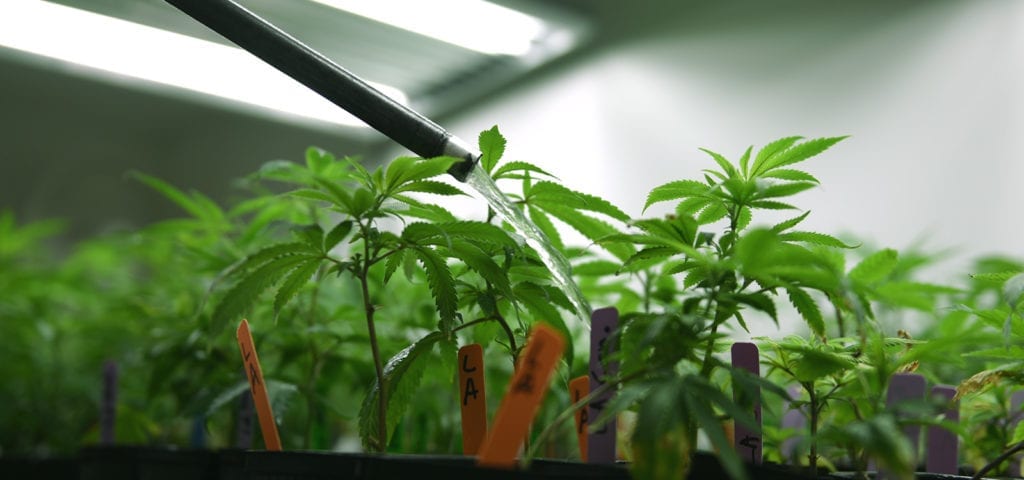

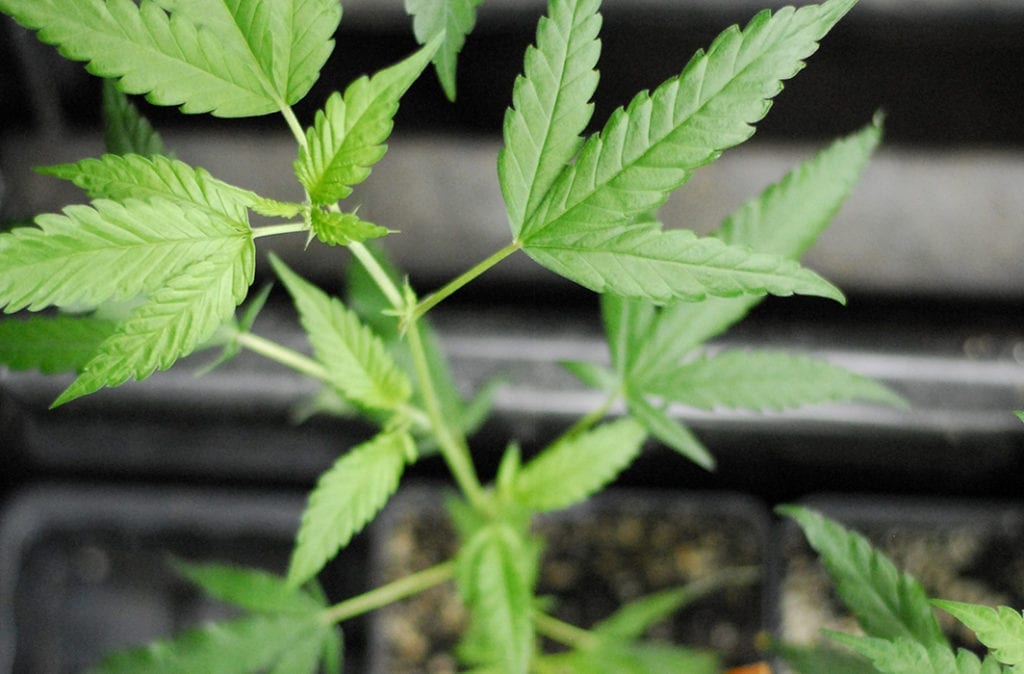







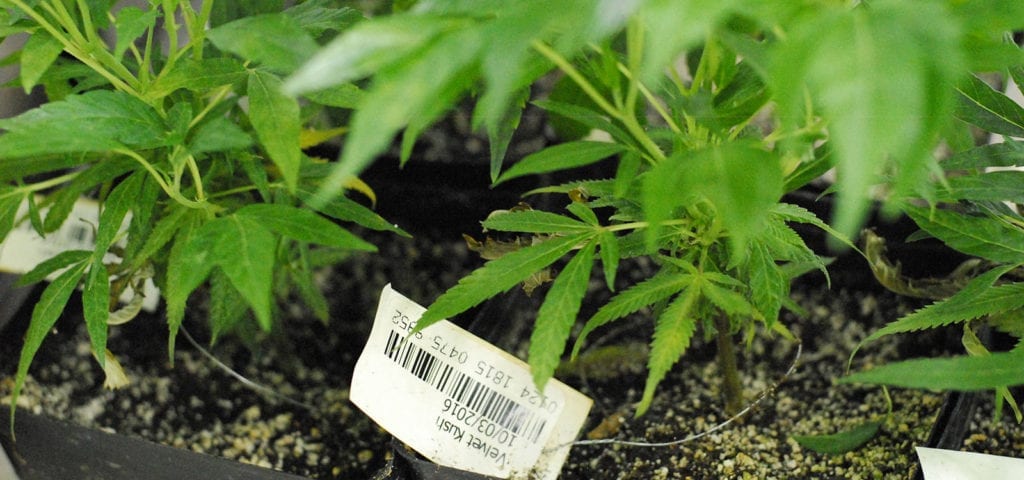

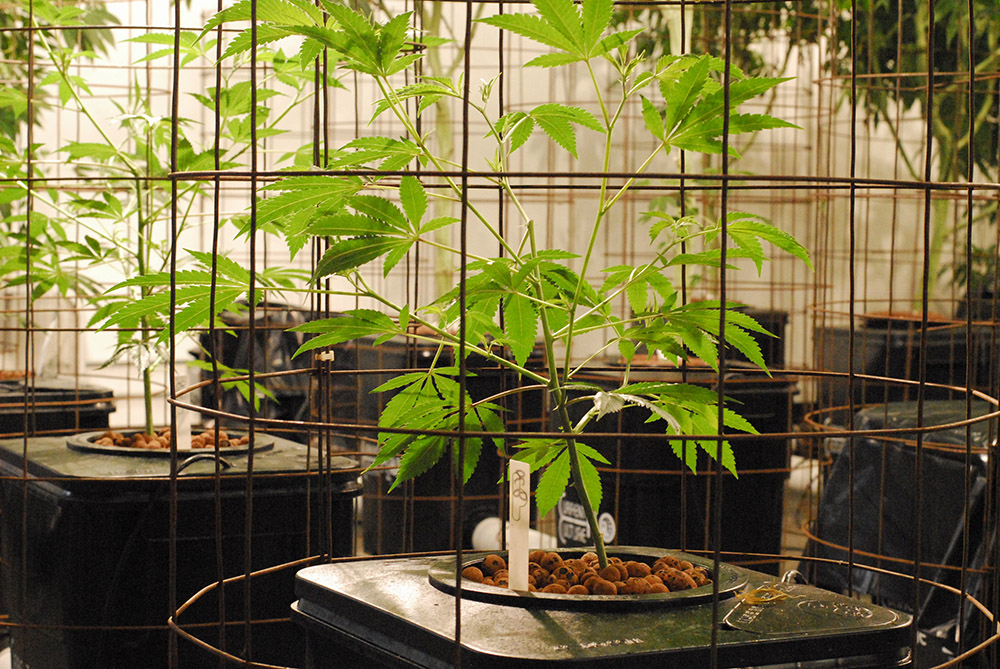
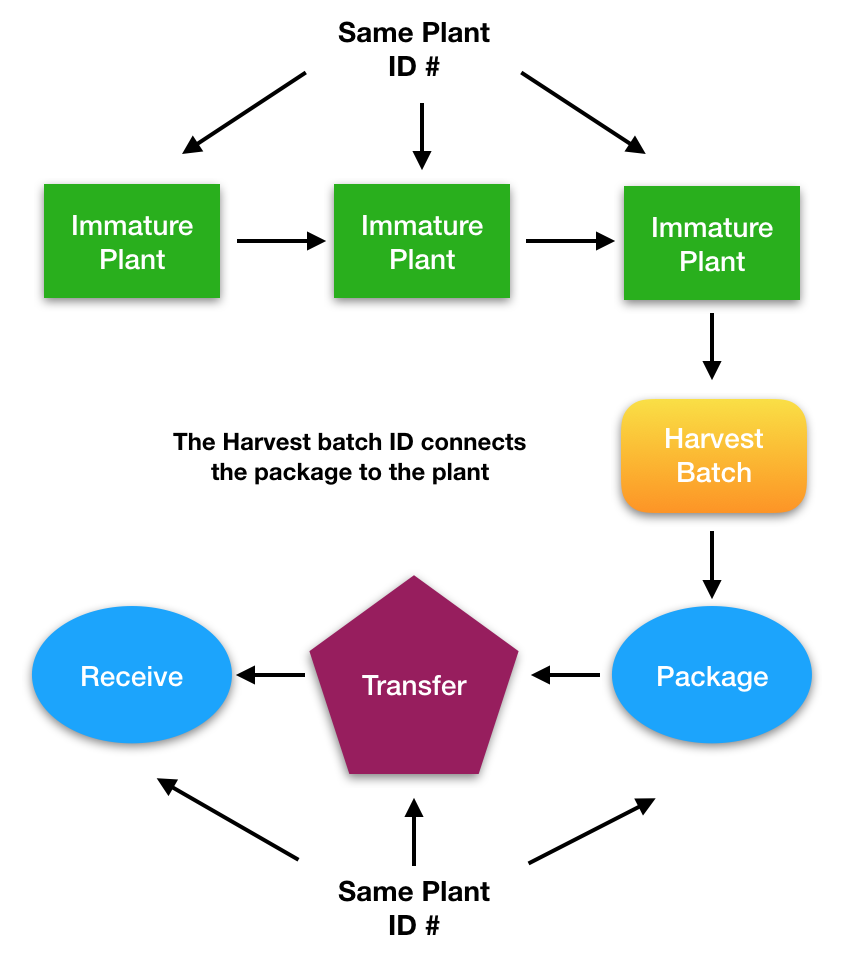
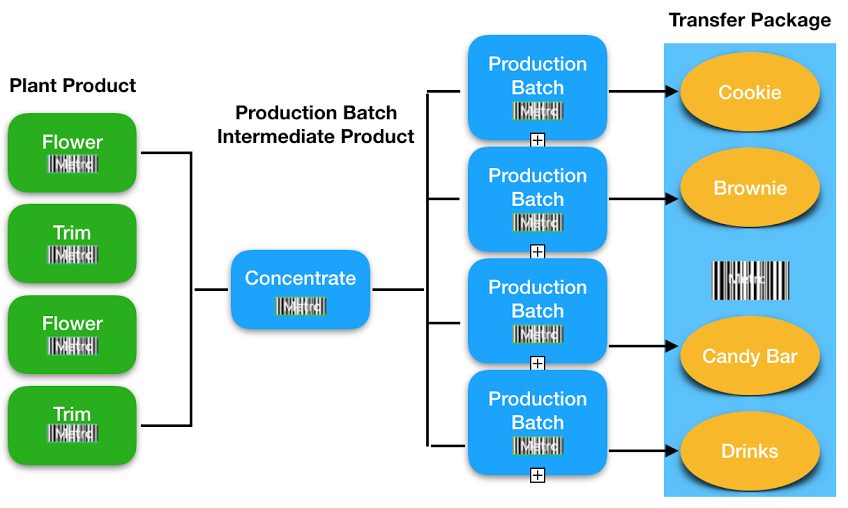
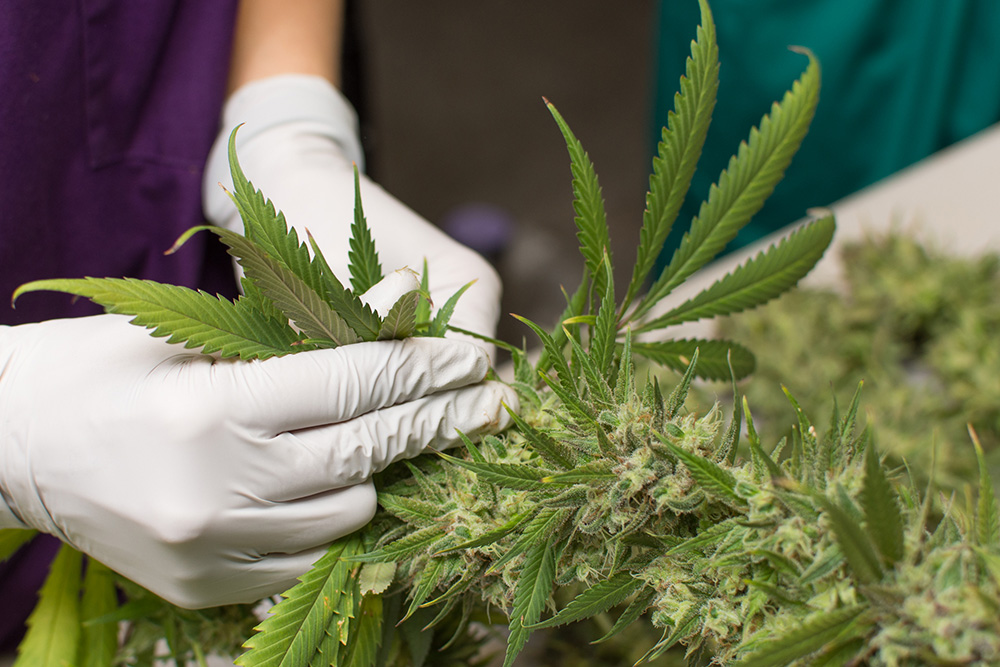
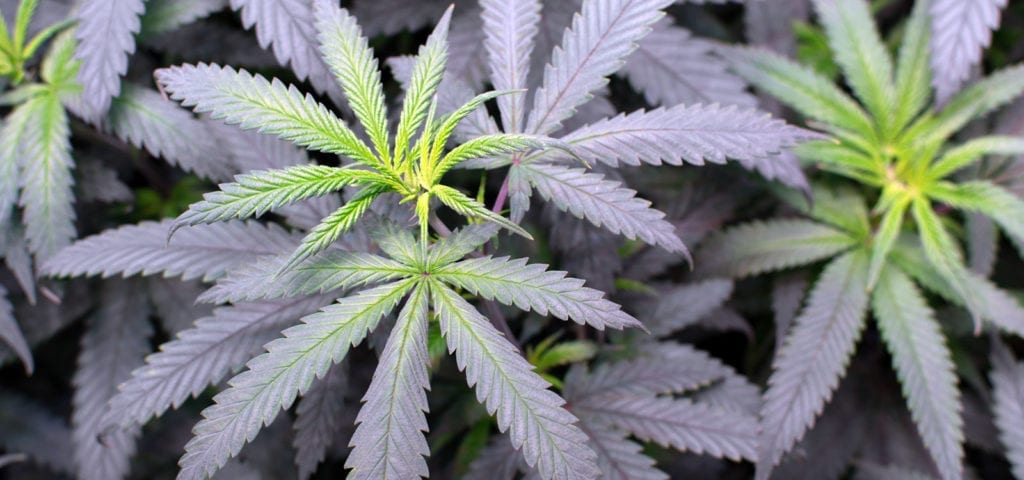




 Lemon Crush from Molecular Farms won in the flower category this year. A full list of winners is also included below.
Lemon Crush from Molecular Farms won in the flower category this year. A full list of winners is also included below.

